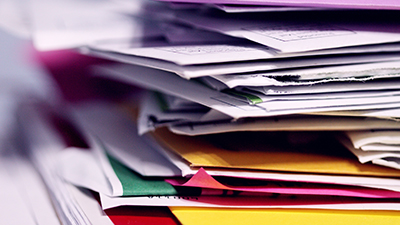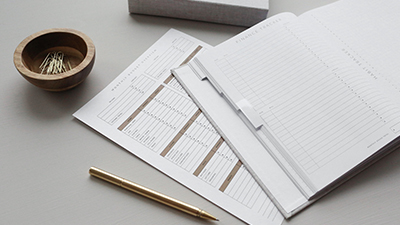
Financial documents are important and should be kept safe and secure, on average you need to keep financial records for 6 years, that’s a long time to keep them stacked up in your office. A paperless society is something we are all moving towards but lots of financial documents still require a hard copy, so what’s the best way to store these documents?
Blog Contents:
How to store hard copies
There are many ways to secure your businesses financial information. The traditional ways are filing cabinets or boxes which can be easily stored and many businesses keep their documents on site if they have the available space to do so.
However what if your business doesn’t have the space? Using an external storage provider frees up office space and gives you peace of mind that your documents are safe and monitored, as well as easily accessible when needed.
How to store digital copies
Storing digital copies is much easier compared to keeping hard copies. Scanning and downloading financial documents is the modern way to store information as we go paperless, it’s also much easier to find on desktops and can even be accessed away from the office on mobile devices by storage systems such as the cloud.
What financial documents do I need to keep?
Financial documents such as bank statements are becoming paperless which makes these simple to store electronically by scanning these documents, whereas HMRC documents are more likely to be paper based and require safe storage.
Business expenditure documents and reports are another example of financial documents that need to be kept secure and easily accessible, whether this be a digital copy or the original hard copy. Furthermore, employee financial documents need to kept safe and classified so the business doesn’t break any GDPR or data protection guidelines.
Why does my business need to keep documents for 6 years?
The UK government advises that all limited companies maintain their financial documents for 6 years from the end of the last company financial year they relate to. For example if your business filed your 2017-18 tax return for the deadline of 31 January 2019 you’ll need to keep these records until January 2024.
Maintaining these records is useful for your business. If HMRC are making enquiries about business tax reports and need sufficient proof you’ll have these to hand, this helps everything run smoothly.
How to dispose of financial documents?

Paper and electronic documents need to be kept secure to avoid the risk of identity theft and should be disposed of correctly. If financial information gets into the wrong hands this could give unauthorised personnel private information such as names, addresses, financial details such as account numbers, logins and card numbers.
Exposing this information can cause to many problems and could lead you to be a victim of fraud. The correct way to dispose of all financial information is to shred the documents, this makes the paper impossible to reconstruct and is the safest way to prevent information being leaked.
Looking to store your businesses financial documents?
If you think your business would benefit from external financial document storage, please feel free to contact our team today. Our team are happy to go through all the processes and additional services we can provide for your business.
